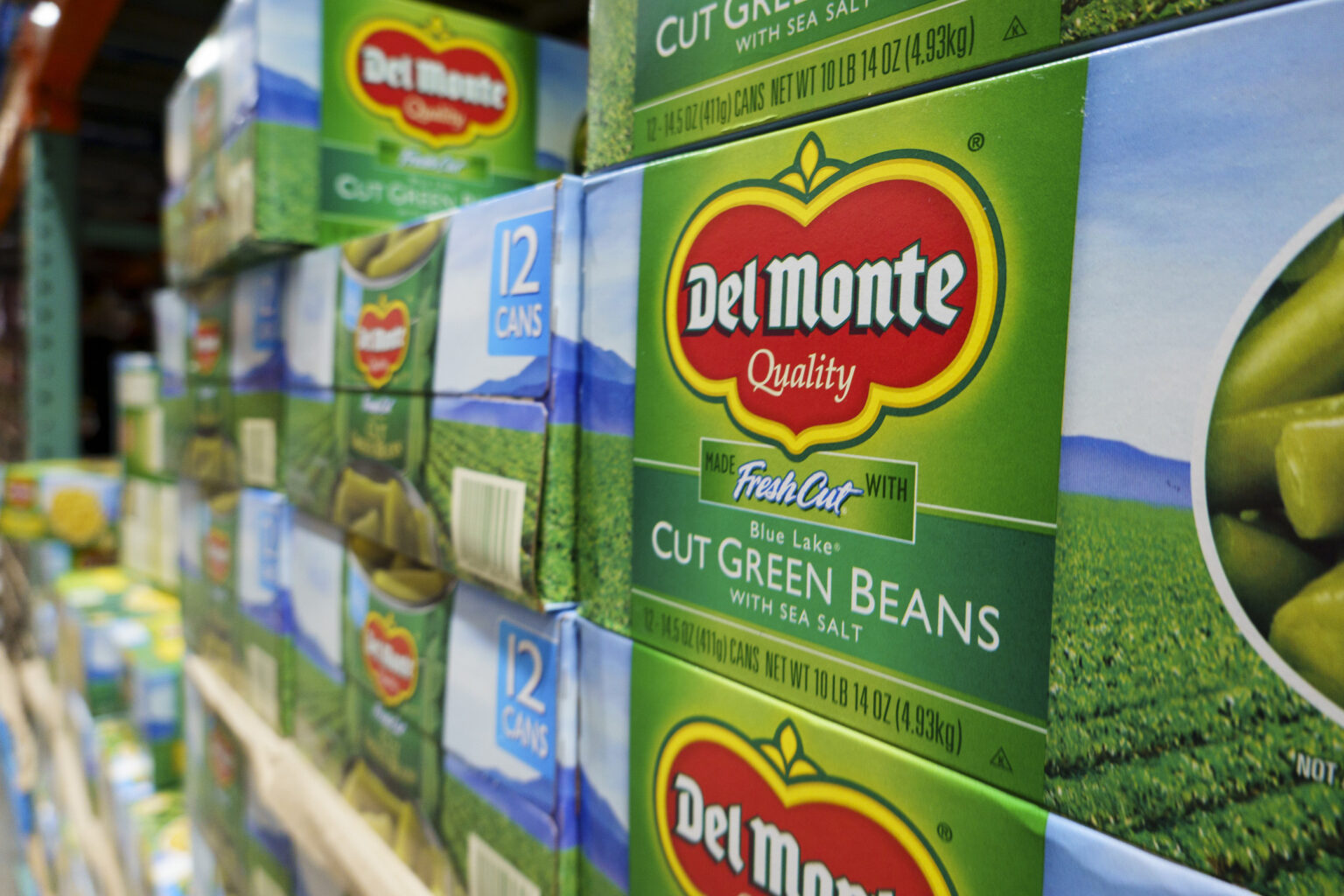Del Monte Foods, a 139-year-old California-based company, filed for bankruptcy Tuesday. The canned-food producer is among the latest century-old businesses to file amid uncertain economic times.
The company filed its Chapter 11 bankruptcy through the U.S. Bankruptcy Court for the District of New Jersey.
In its release, Del Monte said it would be pursuing a “value-maximizing sale process as part of an overall strategic balance-sheet restructuring.”
Why It Matters
Del Monte’s filing follows a spree of bankruptcy filings by businesses that historically stood the test of time and operated for more than a century.
The uptick in bankruptcy filings could indicate larger economic distress, as inflation, tariffs and fears of a recession all contribute to lower consumer demand.
What To Know
Del Monte said it has secured a commitment for $912.5 million in debtor-in-possession financing, which includes $165 million in new funding from certain existing lenders, subject to court approval.
“This is a strategic step forward for Del Monte Foods. After a thorough evaluation of all available options, we determined a court-supervised sale process is the most effective way to accelerate our turnaround and create a stronger and enduring Del Monte Foods. With an improved capital structure, enhanced financial position and new ownership, we will be better positioned for long-term success,” Greg Longstreet, president and CEO of Del Monte, said in a statement.
Newsweek reached out to Del Monte for comment via email. In its release, the company said it will still be able to operate business as usual based on motions subject to court approval.
The company attributed some of its challenges to be “intensified by a dynamic macroeconomic environment,” signaling that other centuries-old companies are likely facing distress.
Last month, North America’s oldest corporation, Canada’s Hudson’s Bay Company, also filed for bankruptcy after 355 years. The company was founded in 1670 and lasted centuries after transitioning from fur trading to retail but ultimately couldn’t survive the shift to e-commerce.
“The threat and realization of a trade war has created significant market uncertainty and has impacted our ability to complete these transactions,” CEO Liz Rodbell said in a March statement.
Brooks Brothers, also a significantly old company, founded in 1818, filed for bankruptcy in 2020. Lord & Taylor, a 194-year-old retailer, also filed for bankruptcy that year.
And last year, another centuries-old company, Conn’s HomePlus, declared bankruptcy, citing changing customer spending habits, higher labor costs and inflation.
Looking by specific industry, Del Monte is the fourth company in the food and beverage sector to file for Chapter 11 this year and the 15th since the beginning of 2024, according to Debtwire data.
“Unfortunately, Del Monte’s decision comes at a time when other major businesses are filing for bankruptcy, showing that rising costs and older business models are facing significant headwinds from inflationary pressures over the last few years,” Alex Beene, financial literacy instructor for the University of Tennessee at Martin, told Newsweek.
What People Are Saying
Longstreet, in a statement: “While we have faced challenges intensified by a dynamic macroeconomic environment, Del Monte Foods has nourished families for nearly 140 years, and we remain committed to our mission of expanding access to nutritious, great-tasting food for all. I am deeply grateful to our employees, growers, customers and vendors, as well as our lenders for their support in helping us achieve our long-term goals.”
Bankruptcy expert and attorney Sarah Foss, head of legal at Debtwire, told Newsweek: “Consumer preferences have shifted away from preservative-laden canned food in favor of healthier alternatives. The company is also highly leveraged with more than $1 billion in loans on its balance sheet.”
Beene also told Newsweek: “While Del Monte’s bankruptcy may concern their customers who have relied on them for canned foods over the last few decades, its decision to file Chapter 11 voluntarily doesn’t signal the end of its operations. This is more of a restructuring overseen by the courts that will hopefully lead to more efficiency in both production and financial administration moving forward.”
What Happens Next
It’s likely that more businesses will seek out Chapter 11 bankruptcy as inflation and consumers shying away from brick-and-mortar stores affect their bottom lines.
At least 686 companies filed for bankruptcy last year, according to S&P Global Market Intelligence. That marks an 8 percent uptick from 2023 and the highest figure since 2010.
Read the full article here

